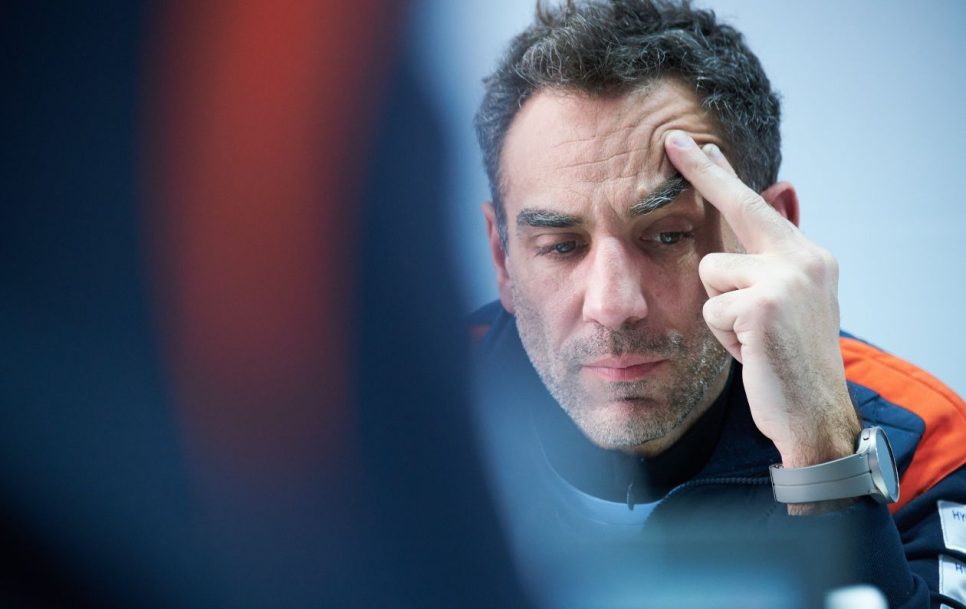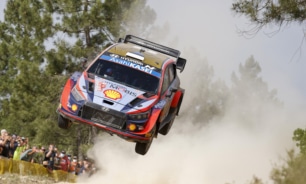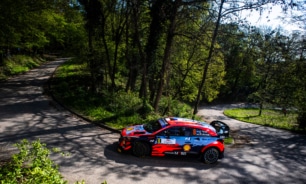WRC vs F1: is Hyundai switching sides?
The head of Hyundai’s motorsport division, Cyril Abiteboul, said during the WRC Rally Croatia that the South Korean car manufacturer is actively considering participation in different racing series, according to the RacingNews365.com portal. Of course, this raises the question: will Hyundai leave WRC to go to the king of the racing world, Formula 1?
History indicates that this could very easily happen. In the early 1990s, Toyota rose to the top of the rallying world under the leadership of former driver Ove Andersson, but withdrew in 1999 to focus entirely on their Formula program.
Although the Japanese manufacturing giant spent a huge amount of money – an estimated two billion US dollars – they did not achieve the expected success in Formula 1. At best, they finished fourth in the constructors’ standings, and although their drivers stepped on the podium 17 times over eight years, they never reached the very top.
F1 is more innovative than WRC
The increasing popularity of the F1 series in recent years has attracted the attention of multiple car manufacturers, at a time when the automotive industry wants to go green and therefore invests huge amounts of money in doing so. Formula 1 is a paradox in this sense, as crews and equipment mostly travel from Europe by plane to many overseas GPs. Not too “green”, per se…
Still, there have been talks of Hyundai’s possible interest in Formula 1 for quite some time. Abiteboul’s latest interview proved to be significant in the sense that he publicly suggested that Hyundai may need to abandon WRC if it doesn’t offer a greater connection to electric motors.
According to the current rulebook, hybrid cars are driven in the top class of WRC, Rally1, where the cars draw power from both internal combustion and electric motors. For F1, the situation is the same, with the “slight” difference that hybrid technology was introduced way back in 2014. Eight years before WRC came around to it. In other words, Formula 1 has proven to be a much more innovative series than WRC.
The next major technical rule change in F1 is expected in 2026, and it is clear that much more attention will be paid to electricity as a power source. This is one reason why Audi, whose roots go deep into the racing history, will join the Formula carousel in that season.
It is also true that F1 engine development takes a lot of time, so it’s highly unlikely Hyundai’s Formula cars will be on the starting line in 2026. Of course, development work also requires a lot of money, but thanks to Hyundai being a huge and very successful corporation, their could very well embark on this journey.
If Hyundai’s interest in Formula 1 were to be realized as a factory team, the most likely year for that would be 2030. However, if South Koreans were to switch from WRC to Formula racing, it would not mean that they would race in the top tier of rallying until 2029. Again, using Toyota as an example: they left WRC in 1999 and made their debut in the F1 series three years later.
It is easier to market a specific car with rallying
Abiteboul noted that it is very important for Hyundai to market its specific cars through motorsport. It is easier to create a connection through rallying than in Formula 1, because the Hyundai i20 N, which serves as the basis for the Rally1 car, is freely available on the market, while Formula 1 cars lack such a direct connection.
However, there is no doubt that F1 is a much bigger marketing tool than WRC. According to the latter’s website, they reach more than one billion people during the season, thanks to television, social media, and traditional journalism. That’s all nice and well, but it’s also 50% less than F1 achieves through broadcasts alone (1.54 billion people, according to series CEO Stefano Domenicali).
Whether we like it or not as fans, motorsport remains essentially a marketing tool for car manufacturers. This gives the F1 series a massive advantage, no matter which motorsport series we compare it to.
Ford’s partnership with Red Bull in Formula 1
However, Hyundai doesn’t necessarily join as a factory team. A good example of this is Ford, which teamed up with Red Bull’s Formula 1 program this year. Ford is helping to develop the next-generation engine that will be used by both Red Bull and its sister team, AlphaTauri, from 2026-30.
According to Mark Rushbrook, head of Ford’s motorsport division, the company’s involvement in WRC will not be affected by its return to Formula 1. Richard Millener, team principal of M-Sport, expressed hope that Ford’s collaboration with Red Bull will also help the rally team.
By the way, the Americans’ explanation for rejoining F1 clearly indicates what WRC needs to do to be desirable to car manufacturers. Rushbrook pointed out that Ford liked the F1 series’ desire to become carbon-neutral, placing even more emphasis on electric motors and the use of sustainable fuels.
WRC needs to prove that they can keep up with the automotive industry, or the future may be bleak.










